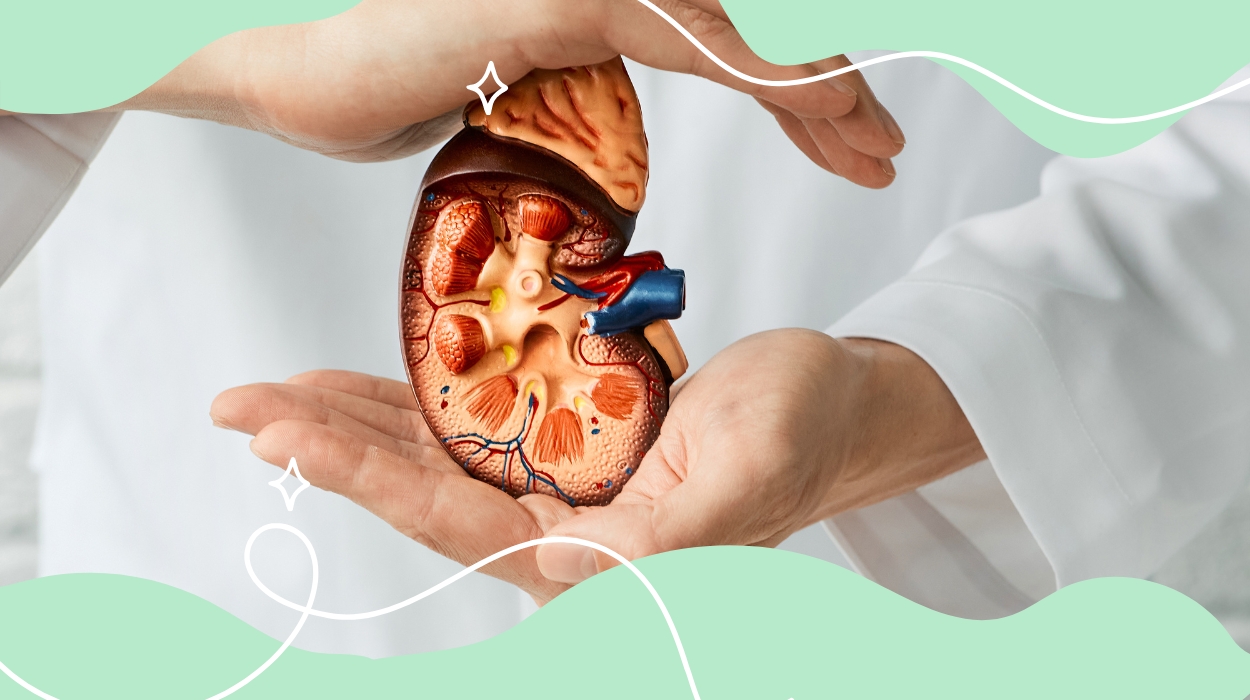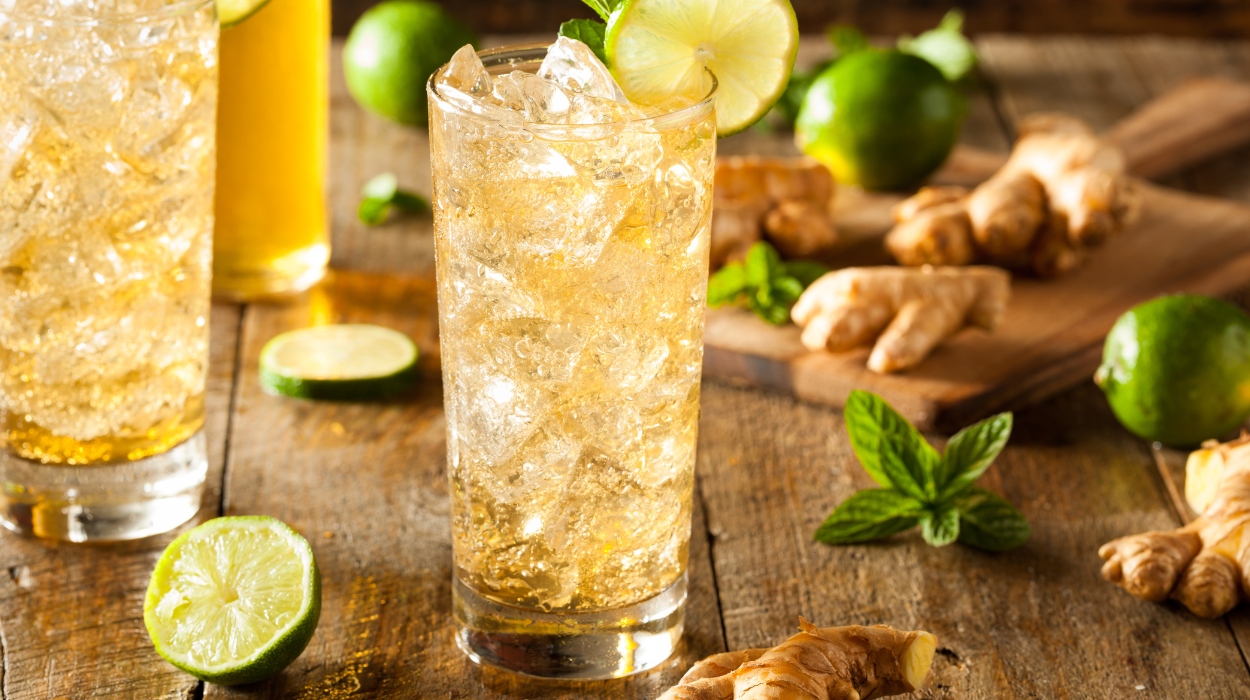 Expert's opinion
Expert's opinion
Expert's opinion
The article is a subjective view on this topic written by writers specializing in medical writing.
It may reflect on a personal journey surrounding struggles with an illness or medical condition, involve product comparisons, diet considerations, or other health-related opinions.
Although the view is entirely that of the writer, it is based on academic experiences and scientific research they have conducted; it is fact-checked by a team of degreed medical experts, and validated by sources attached to the article.
The numbers in parenthesis (1,2,3) will take you to clickable links to related scientific papers.
Foods Bad For Kidneys: 5 Types Of Foods To Avoid 2024

If you or someone close to you has received a diagnosis of chronic kidney disease (CKD) or if you’re concerned about your kidney function, you might be seeking ways to safeguard your kidney health. While it’s crucial to adhere to your doctor’s guidance, there are steps you can take at home to protect yourself. One key aspect that significantly influences your overall well-being, especially for individuals with kidney disease, is your diet. In this article, we will explore the impact of your diet on kidney health and provide valuable tips to bear in mind.
Foods Bad For Kidneys
A kidney friendly diet protects your kidney function and helps prevent imbalance caused by already reduced kidney function. Several dietary restrictions that impact lab values are recommended, making continued follow-up with your doctor very important. Individual differences in recommendations are highly likely, so working with a dietitian for an individualized plan is beneficial. Foods that are bad for kidneys tend to be high in:
- Protein.
- Sodium.
- Potassium.
- Phosphorus.
- Calcium.
Examples of bad foods for kidneys are avocados, bananas, apricots, oranges, spinach, whole wheat bread, brown rice, processed meats, and frozen meals.
What Foods Are Bad For Kidneys?
Certain Fruits
Avocados
A serving of avocado (one-third of a standard-sized Hass avocado) contains roughly 250mg of potassium. Avocados do offer a variety of health benefits. A renal dietitian can help you determine whether a particular amount of avocados are safe for you.
Apricots
Whether raw or dried, apricots contain a high level of potassium – more than 200mg per serving. These can be tricky because of serving size – one raw apricot is likely ok. Dried fruits, including apricots used as snack foods, may add up more quickly depending on how many you reach for. Some better alternatives are apples, blueberries, grapes, and strawberries. Berries, in particular, may help repair kidneys.
Bananas
One medium-sized banana can contain over 420mg of potassium, making them one of the more dense nutrient sources.
Oranges
Potassium levels can add up quickly when eating raw oranges but are more problematic when drinking orange juice. It is also helpful to monitor the sugar content in orange juice as this can also add up quickly.
Certain Vegetables
Spinach
Leafy green vegetables, including spinach, beet greens, and Swiss chard are high in potassium. Plenty of health benefits exist, but including raw spinach in your diet should be limited. Cooked spinach (boiling, in particular)[1] does contain a significantly lower potassium content. Soaking or boiling vegetables is effective in general for lowering potassium content.
Whole Grains
Whole Wheat Bread
Whole grains are higher in phosphorus and potassium content. There are some health benefits, but use should be limited to ensure these levels are not building up too much.
Brown Rice
Cooked white rice can be a better alternative for some individuals with kidney disease because processing removes much of the potassium and phosphorus. It should be noted, however, that the fiber content and potential gut microbiome benefits[2] of brown rice may make including it in your diet beneficial, particularly if your potassium levels are typically in a lower range.
Processed Meats
Deli meat, hot dogs, and ham are all examples of processed meats with a lot of sodium and phosphorus added. This can be particularly problematic as meat is already a significant source of phosphorus.
Frozen Meals
Not all frozen meals are created equal – reading the nutrition label is important. Selecting meals designated as low sodium is helpful. It’s also important to limit sources of phosphorus and potassium by limiting beans, tomato sauce, and cheese sauce (unfortunately, mac and cheese is not a good choice).
How Does What You Eat Affect Kidney Disease?
When discussing your kidney health with your doctor, you may have heard a reference to either protein in your urine or your glomerular filtration rate (GFR). A glomerulus is the individual part of your kidney where components of your bloodstream are actively excreted into urine. There are many glomeruli, and kidney function comprises the sum of these individual parts.
The cells that make up the glomerulus can be damaged by high protein levels,[3] high blood pressure (often sensitive to salt intake), and other factors. This damage lowers your ability to regulate levels of important nutrients in the blood. Studies have suggested that a Western diet high in processed foods, salt, and animal protein raises the risk of kidney failure. Your diet can be used to prevent further damage and avoid the potential imbalances caused by existing kidney damage.
Foods To Monitor To Support Healthy Kidneys
High Protein Foods
The recommended amount of protein is defined by kidney disease staging,[4] which is determined by evaluating GFR. In general, protein intake higher than a recommended daily limit of 0.8 grams of protein per kilogram of body weight may increase the risk of complications.[5]
Studies have suggested that animal protein[6] has a more damaging effect on kidney function when compared to protein sources in a vegetarian diet. This further supports using the DASH diet (Dietary Approaches to Stop Hypertension), a meal plan that limits salt, sugar, red meat, and heavily processed foods. Note: the DASH diet is not recommended for patients on dialysis, and consultation with a healthcare professional is recommended prior to starting if you have established chronic kidney disease.
High Sodium Foods
Excess sodium raises blood pressure. Other mechanisms of sodium interference have been suggested, but the potential for increased blood pressure has an established association with decreased kidney function.
High Potassium Foods
Potassium levels can build up in individuals with reduced kidney function, so a common approach is to limit potassium intake in your diet. This can become difficult because many foods in otherwise healthy meal plans (including the DASH diet) are high in potassium. Potassium is sensitive to a number of other factors (including medications, poor blood sugar control, and constipation), and adjustments are best made after reviewing lab values and all potential causes of elevated potassium.
The Mediterranean diet[7] has been suggested as an ideal starting approach because of its adaptability to all stages of kidney disease and its ability to slow down the progression to end stage kidney disease. The potassium content of foods can be adjusted as needed based on lab monitoring.
High Phosphorus Foods
Phosphorous levels can also build up because of lower kidney function. This buildup can negatively impact many organ systems,[8] including bones and the heart. Phosphorus intake is likely to be much higher when eating processed foods, as they are common additives.
High Calcium Foods
Calcium balance is altered by chronic kidney disease. Early stages may not require limiting calcium intake, but a progression toward end stage renal disease carries a higher risk of calcium balance disruption (partially due to the increased likelihood of prescribed use of vitamin D analogues). Increased calcium levels can lead to calcification of blood vessels which raises the risk of blood clots and stroke.[9] High blood calcium levels also increase the risk of kidney stones.
What Drinks Are Bad For Kidneys?

Dark-Colored Sodas
The phosphorus content is much higher in dark sodas, which can cause build-up. Sugar-sweetened cola has also been associated with a higher risk of kidney stones.[10]
Alcoholic Beverages
Drinking alcohol can have a variety of effects on the body. Individuals with reduced kidney function will want to be aware of risks associated with dehydration (and the resulting potential for acute kidney failure), interactions with medications, and blood sugar control difficulty for diabetics. A review of multiple studies suggests that having more than two drinks per day[11] speeds up the progression of kidney disease.
Conclusion
In conclusion, taking steps to protect your kidney health is important if you have chronic kidney disease or are concerned about your kidney function. Along with following your doctor’s guidance, you can make a difference at home through your diet.
Certain nutrients like protein, sodium, potassium, phosphorus, and calcium should be limited to support your kidneys. High blood pressure and excessive animal protein intake can harm your kidneys, so it’s important to monitor your intake of foods like meat, processed foods, and high-sodium items.
Choosing kidney-friendly options like the DASH diet or the Mediterranean diet can be beneficial. Remember to enjoy fruits, vegetables, whole grains, and other foods in moderation, and consult a healthcare professional or renal dietitian for personalized advice. By making mindful choices, you can actively safeguard your kidney health.
Frequently Asked Questions
Along with following your doctor’s guidance, you can protect your kidney health at home through your diet.
Diet plays a crucial role in kidney disease by influencing kidney function and preventing further damage or imbalances caused by existing kidney damage.
A kidney-friendly diet primarily focuses on limiting protein, sodium, potassium, phosphorus, and calcium.
High protein levels can damage the cells in the kidney’s filtration system, leading to difficulties in regulating important nutrients in the blood.
Studies suggest that animal protein has a more damaging effect on kidney function compared to protein sources in a vegetarian diet.
Excess sodium can raise blood pressure, which is associated with decreased kidney function.
Potassium levels can build up in individuals with reduced kidney function, and controlling potassium intake helps maintain a balance.
Dark-colored sodas high in phosphorus and alcoholic beverages (more than two drinks per day) are not recommended for individuals with kidney disease.
+ 11 sources
Health Canal avoids using tertiary references. We have strict sourcing guidelines and rely on peer-reviewed studies, academic researches from medical associations and institutions. To ensure the accuracy of articles in Health Canal, you can read more about the editorial process here
- Borges, A., Camila Cremonezi Japur, Isaías Valente Prestes, J Fortunato Silva, M Cavanha and das, G. (2021). Potassium reduction in food by preparation technique for the dietetic management of patients with chronic kidney disease: a review. [online] 34(4), pp.736–746. doi:https://doi.org/10.1111/jhn.12846.
- Eman Wehedy, Shatat, I.F. and Souhaila Al Khodor (2022). The Human Microbiome in Chronic Kidney Disease: A Double-Edged Sword. [online] 8. doi:https://doi.org/10.3389/fmed.2021.790783.
- Kramer, H. (2019). Diet and Chronic Kidney Disease. [online] 10, pp.S367–S379. doi:https://doi.org/10.1093/advances/nmz011.
- T. Alp Ikizler and Cuppari, L. (2021). The 2020 Updated KDOQI Clinical Practice Guidelines for Nutrition in Chronic Kidney Disease. [online] 50(4-5), pp.667–671. doi:https://doi.org/10.1159/000513698.
- Ioannis Delimaris (2013). Adverse Effects Associated with Protein Intake above the Recommended Dietary Allowance for Adults. [online] 2013, pp.1–6. doi:https://doi.org/10.5402/2013/126929.
- Amelie Bernier-Jean, Prince, R., Lewis, J.R., Craig, J.C., Hodgson, J.M., Lim, W.H., Teixeira-Pinto, A. and Wong, G. (2020). Dietary plant and animal protein intake and decline in estimated glomerular filtration rate among elderly women: a 10-year longitudinal cohort study. [online] 36(9), pp.1640–1647. doi:https://doi.org/10.1093/ndt/gfaa081.
- Almudena Pérez-Torres, Caverni-Muñoz, A. and González, E. (2022). Mediterranean Diet and Chronic Kidney Disease (CKD): A Practical Approach. [online] 15(1), pp.97–97. doi:https://doi.org/10.3390/nu15010097.
- Annual Reviews. (2017). Dietary Phosphorus Intake and the Kidney. [online] Available at: https://www.annualreviews.org/doi/10.1146/annurev-nutr-071816-064607.
- Wu, M., Rementer, C. and Giachelli, C.M. (2013). Vascular Calcification: An Update on Mechanisms and Challenges in Treatment. [online] 93(4), pp.365–373. doi:https://doi.org/10.1007/s00223-013-9712-z.
- Pietro Manuel Ferraro, Taylor, E.N., Gambaro, G. and Curhan, G.C. (2013). Soda and Other Beverages and the Risk of Kidney Stones. [online] 8(8), pp.1389–1395. doi:https://doi.org/10.2215/cjn.11661112.
- Yamamoto, R., Li, Q., Otsuki, N., Maki Shinzawa, Yamaguchi, M., Minako Wakasugi, Nagasawa, Y. and Yoshitaka Isaka (2023). A Dose-Dependent Association between Alcohol Consumption and Incidence of Proteinuria and Low Glomerular Filtration Rate: A Systematic Review and Meta-Analysis of Cohort Studies. [online] 15(7), pp.1592–1592. doi:https://doi.org/10.3390/nu15071592.



